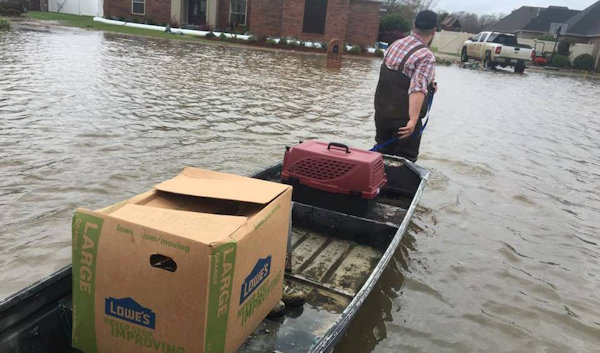As storms hit many states in the U.S., UMCOR brings immediate relief and supports long-term recovery.
SUSAN KIM
United Methodist Committee on Relief
Late winter and early spring storms have caused widespread damage across the U.S. and, though the extent of damage is different in every community, no disaster is small for those affected. Support from UMCOR is making a difference in countless ways.
In Virginia, unusual tornadoes that struck in February were the state’s first deadly February twisters on record. The town of Waverly, in the southeastern part of the state, was especially hard hit, but the twisters also caused widespread damage across the state.
UMCOR has distributed emergency grants that are supporting immediate relief as well as the beginning of long-term recovery. “We are coordinating with our state VOAD [Voluntary Organizations Active in Disaster) and emergency management groups,” said Bob Pihlcrantz, disaster response coordinator for the Virginia Conference.
In Arkansas, floods damaged more than 100 homes in the city of McGehee, with damage throughout the rest of the state as well after more than three days of rain blanketed a widespread area. Janice Mann, disaster response coordinator for the Arkansas Conference, echoed other disaster responders across the nation when she asked people to consider volunteering in the coming months.
“We will be waiting on state emergency managers to finish their assessments and determine whether any state or federal benefits will be available before repair work begins,” said Mann.
Communities across Mississippi and Texas are also coping with storm damage, and affected people there need funds, volunteers, and prayers as well, reported disaster responders in those states. Record flooding occurred along the Sabine River near the Texas-Louisiana border. In Mississippi, tornadoes in early April caused damage that added an extra burden after damage from earlier storms.
Louisiana’s disaster still unfolding
In Louisiana, floodwater is still receding in many communities, said Darryl Tate, director of disaster preparedness for the Louisiana Conference. “In some parts of the state we are still in the emergency phase,” he said. “The water is still there.”
Long-term recovery is likely to take many months as flood survivors in Louisiana go through a case management process. During the current relief phase, early response teams have been mucking out, cleaning, and sanitizing homes.
“We will work together with other faith-based organizations,” said Tate.
There will be plenty of opportunities for volunteers after residents determine how much aid they will receive from the Federal Emergency Management Agency, and as case managers determine which homes most need repairs.
Statewide, 26 out of Louisiana’s 64 parishes were affected by floods or tornadoes, Tate added.
No disaster is small to those affected. Your gift to UMCOR U.S. Disaster Response, Advance #901670, will ensure no community is forgotten.
Last Updated on October 23, 2023

